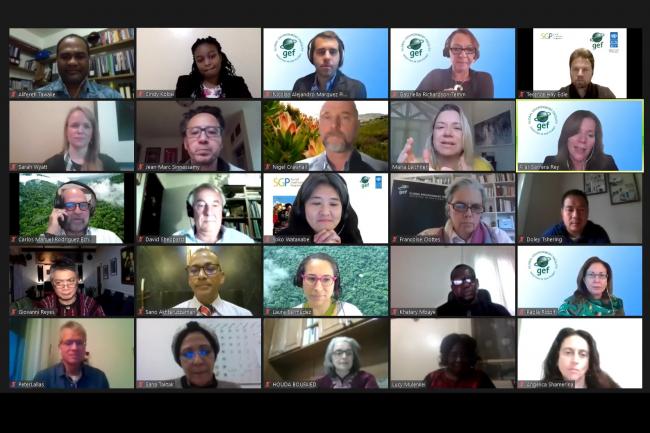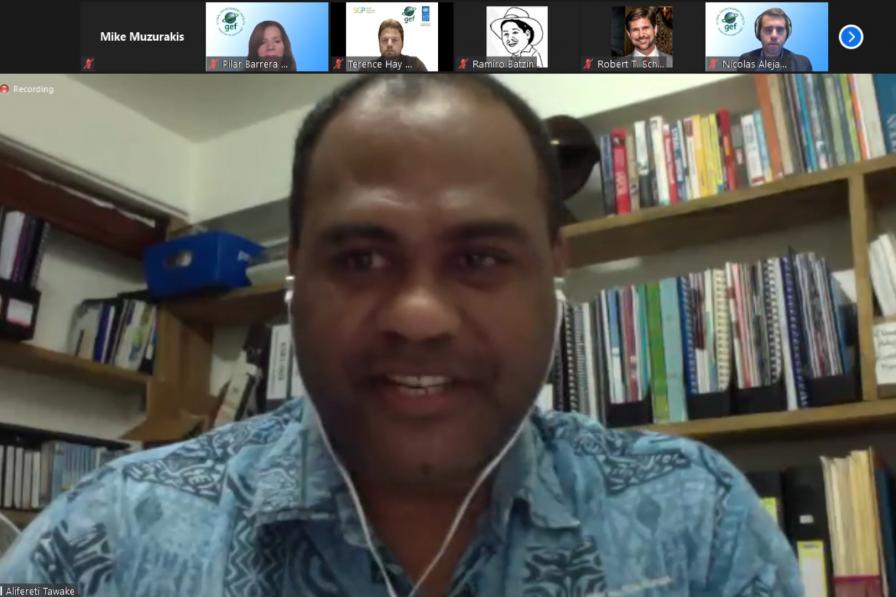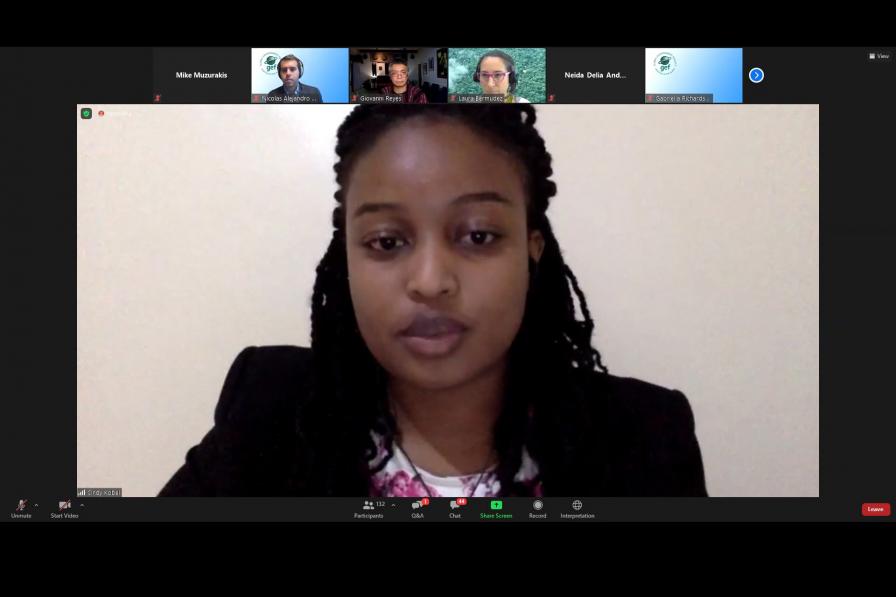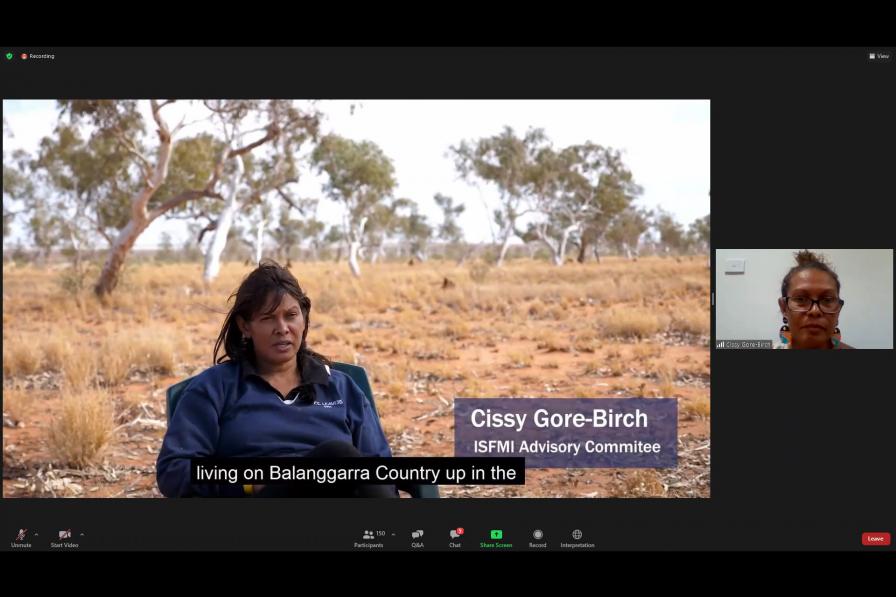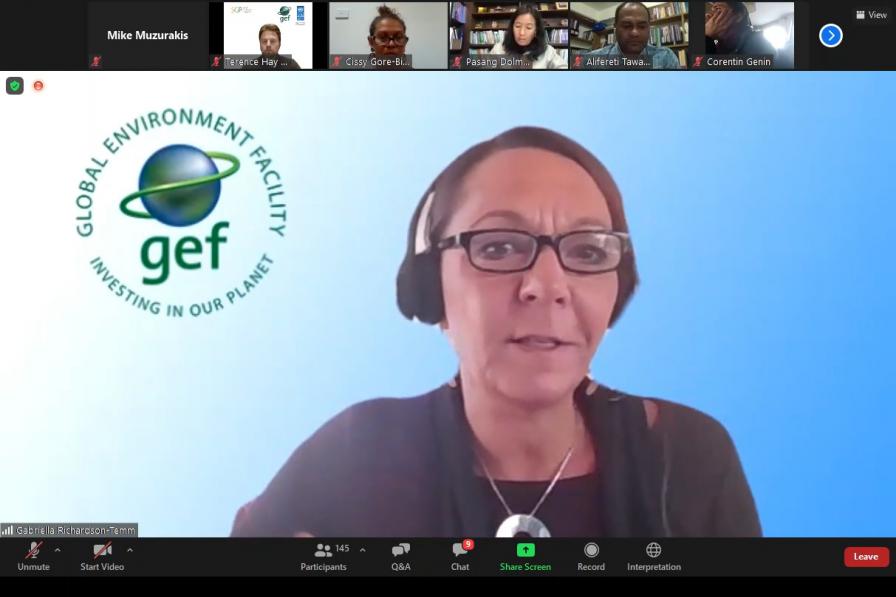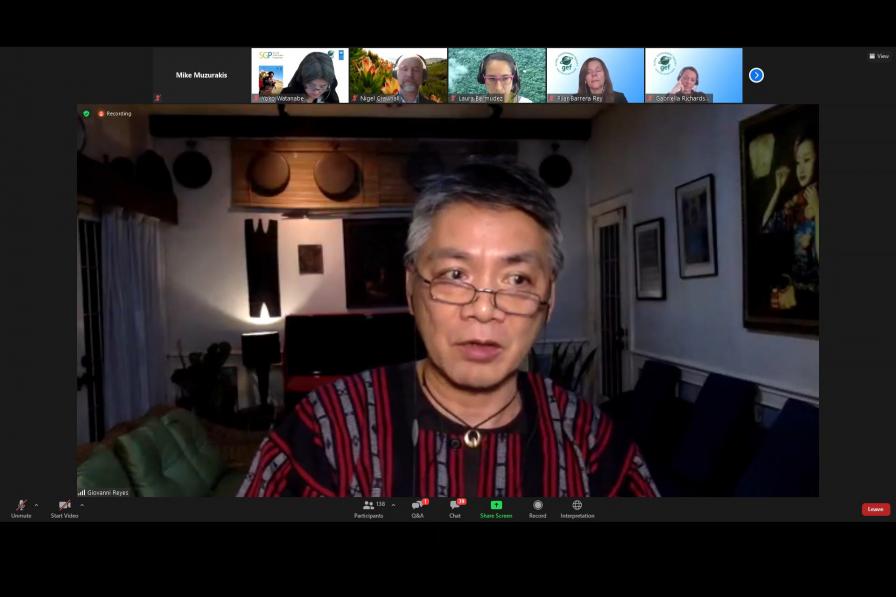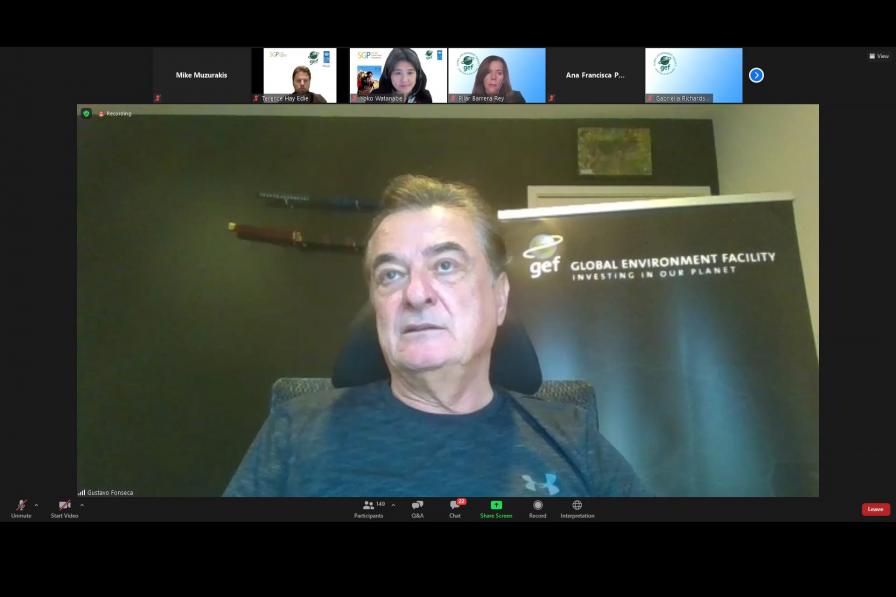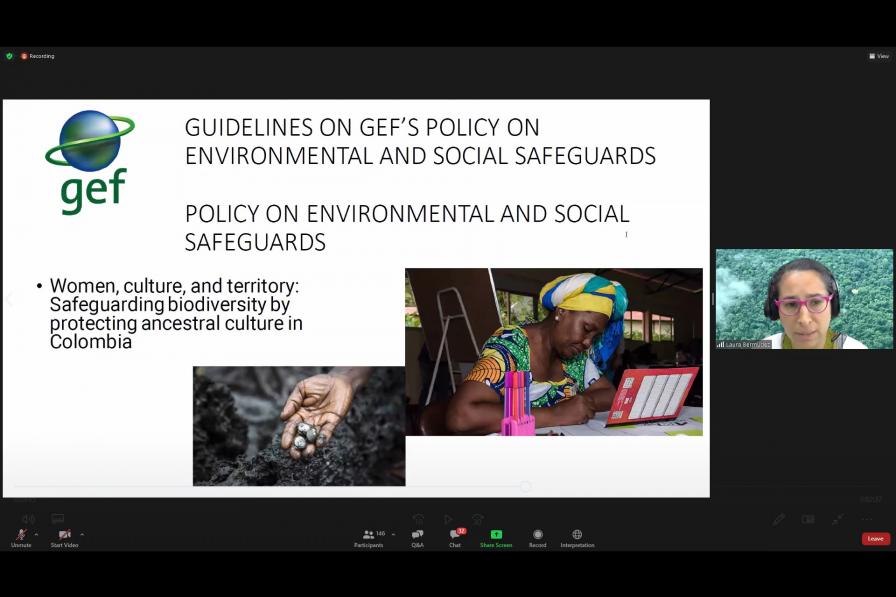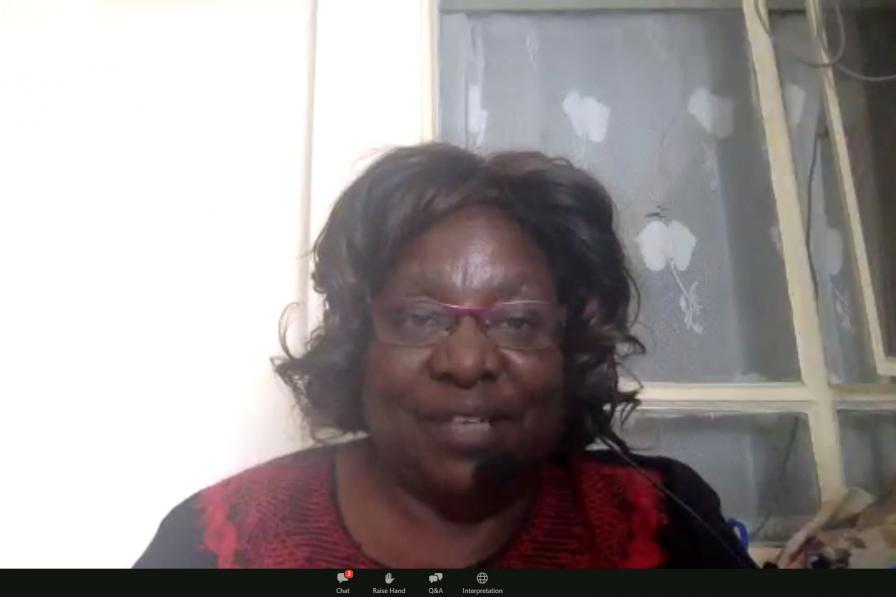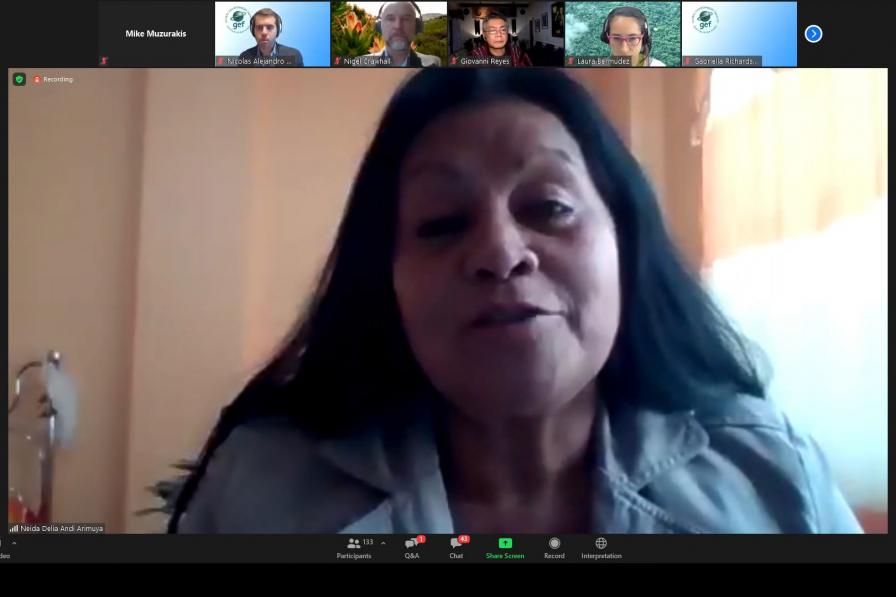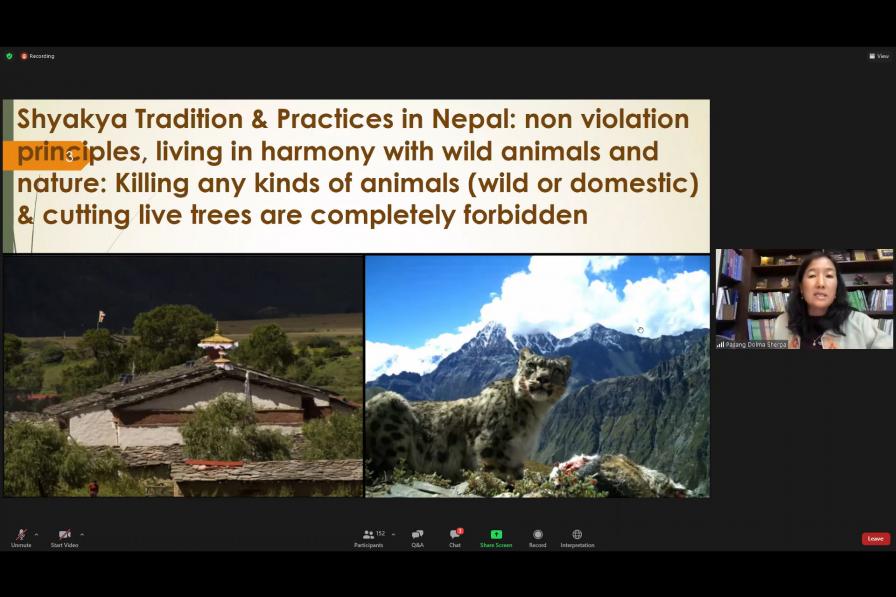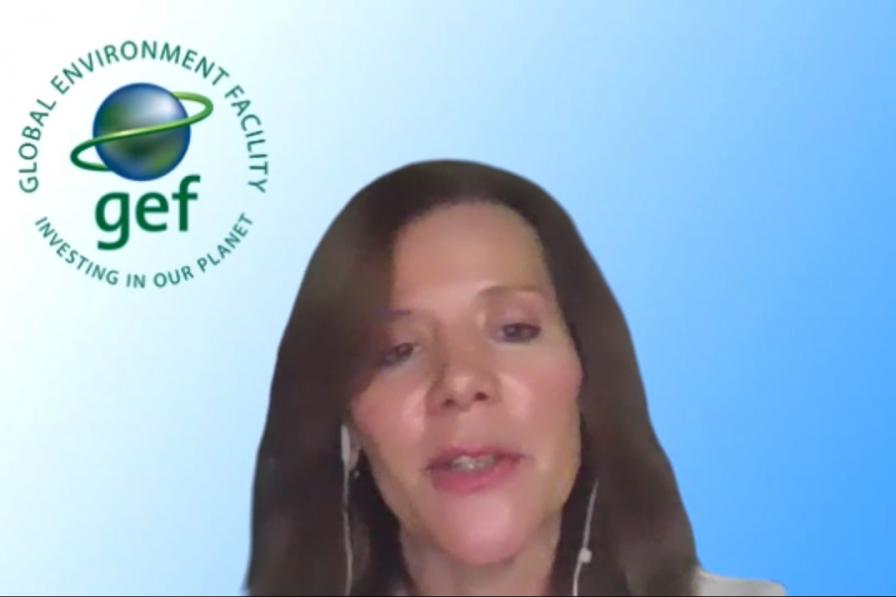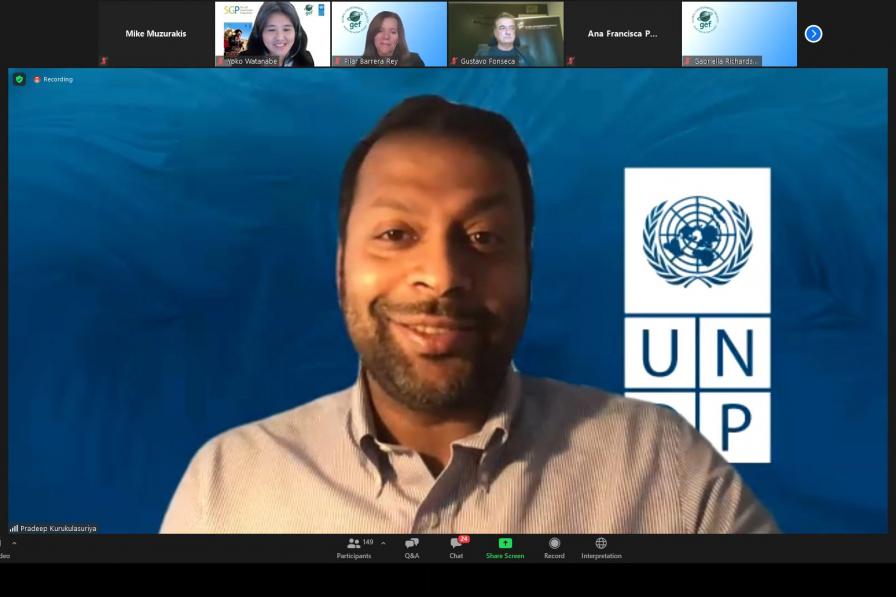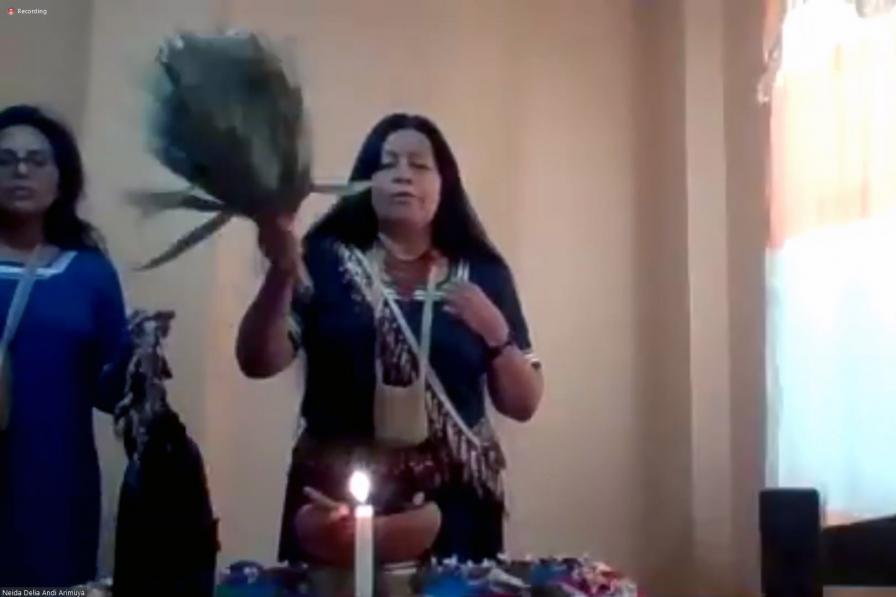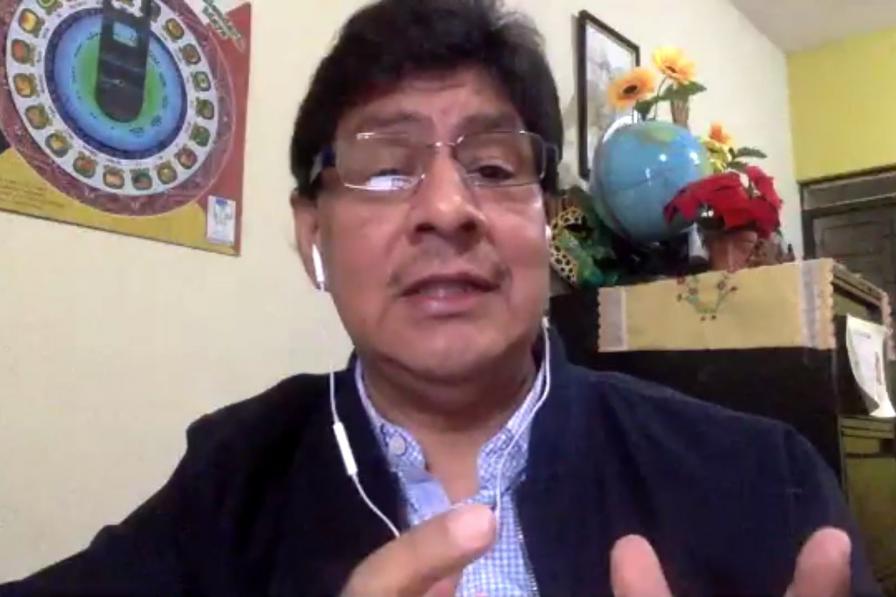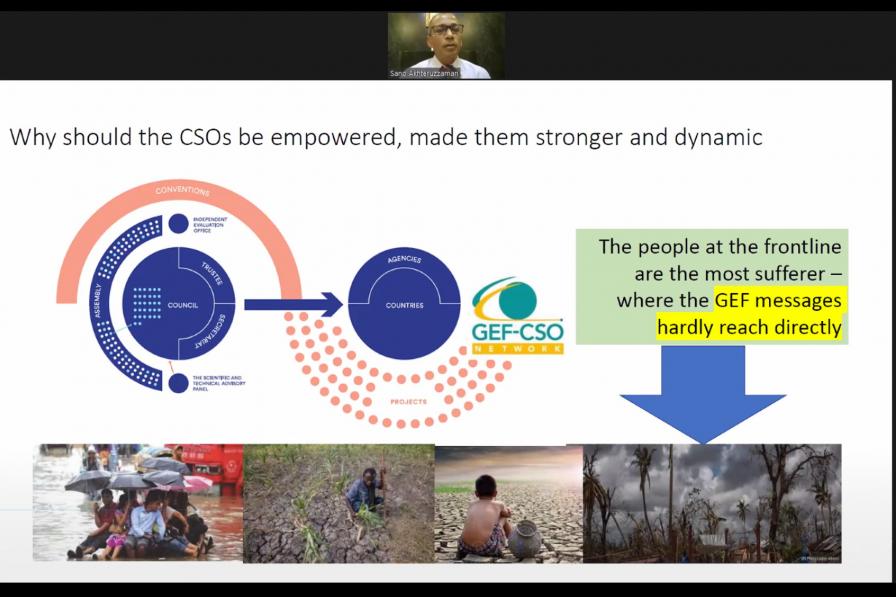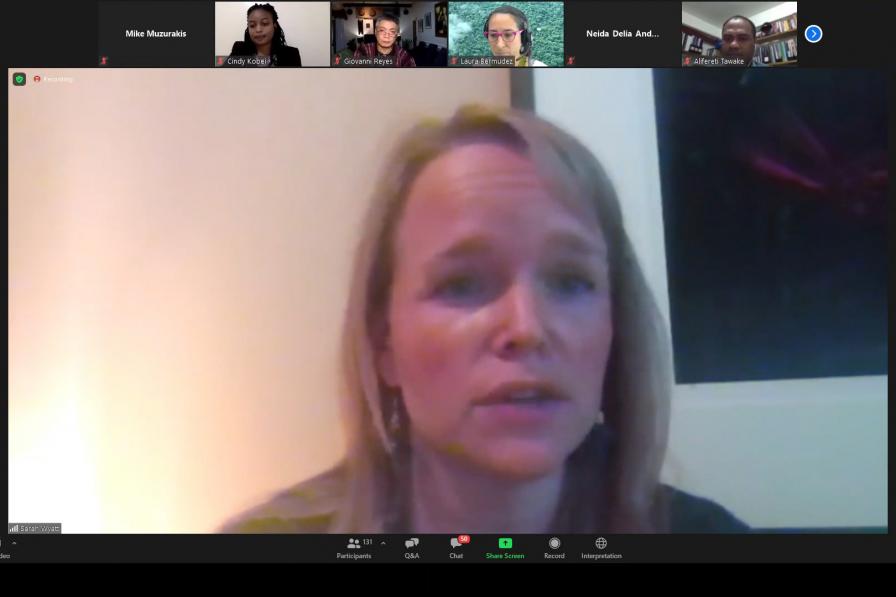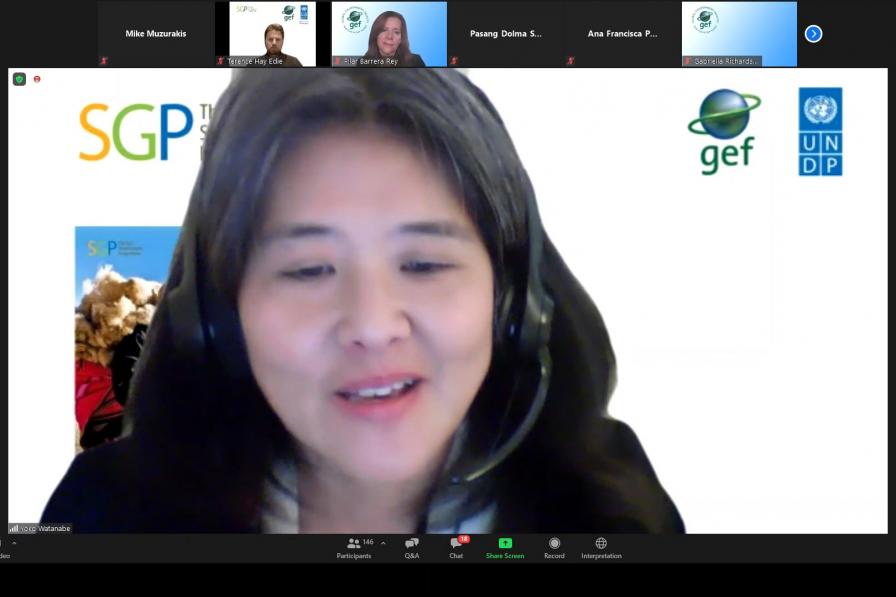The Global Environment Facility (GEF) Council consultation with Civil Society Organizations (CSOs) took place virtually on 4 December 2020, on the theme, “The Application of Traditional Knowledge by Indigenous Peoples and Local Communities: Stewards of the Global Environment.” This meeting was organized in collaboration with the Indigenous Peoples Advisory Group (IPAG), the GEF Small Grants Programme (SGP), and the GEF CSO Network. Participants discussed the value of traditional knowledge in supporting the conservation of biodiversity, climate change mitigation and adaptation, as well as combating other global and local threats, including responses to the COVID-19 pandemic.
CSO Dialogue with the GEF CEO
Akhteruzzaman Sano, Chair of the GEF CSO Network, highlighted the need for a common set of indicators for all GEF implementing Agencies to help monitor progress. He pointed to a lack of effective, national and local level engagement mechanisms, and the “invisibility” of the GEF at the grassroots level.
GEF CEO and Chairperson, Carlos Manuel Rodríguez, emphasized the need for a bottom-up approach in the GEF’s engagement with CSOs, adding that the Facility is in a position to support transformational land governance processes with the full legal recognition of indigenous peoples. He called for positive incentives for countries to recognize the role of and spaces for CSOs to tackle the historical challenges faced by indigenous peoples.
Setting the Stage
Neida Delia Andi Arimuya, Ecuador, performed a traditional welcome, featuring a prayer and a blessing from the Amazonian region of Ecuador.
Lucy Mulenkei, Chair, IPAG, highlighted the inclusive nature of the seventh replenishment of the GEF Trust Fund (GEF-7) as an important step forward. She stressed the importance of addressing the full body of indigenous rights in future GEF programming.
Ramiro Batzin, Guatemala, Co-Chair, International Indigenous Forum on Biodiversity, proposed that traditional knowledge be considered as an “indigenous science” in its own right. He highlighted its holistic and collective nature, and the link to the territories where this knowledge is born and developed.
Role of Traditional Knowledge in the Management of IPLC Land and Water Resources
This roundtable was moderated by Terrence Hay Edie, GEF SGP.
Alifereti Tawake, Council Chair, Locally Managed Marine Area Network International, Fiji, said indigenous peoples in the Pacific have deep-rooted connections with nature and have a moral obligation to protect Totemic species and sacred sites.
Pasang Dolma Sherpa, Director, Center for Indigenous Peoples' Research and Development, Nepal, lamented that while indigenous peoples protect 80% of the world’s biodiversity, only 10% of their territories are legally recognized.
Cissy Gore-Birch, Australian traditional fire manager, highlighted a project aimed at creating opportunities in traditional, ecological knowledge planning, noting it has enabled biodiversity conservation and income generation for indigenous peoples in Australia.
Highlighting key messages, Gabriela Richards, GEF, noted the importance of traditional knowledge and skills in combating climate change and environmental degradation.
GEF support to Indigenous Peoples
Yoko Watanabe, Global Manager, GEF SGP, moderated this session. The session launched a publication on the GEF SGP's engagement with indigenous peoples.
Gustavo Fonseca, Director of Programmes, GEF, noted that the publication highlights over 6,000 projects, and will serve as guidance to generate commitment to scale up future work with indigenous peoples.
Pradeep Kurukulasuriya, Executive Coordinator, UNDP, highlighted opportunities to scale-up initiatives and financing for indigenous peoples in biodiversity conservation and climate action.
The Role of Traditional Knowledge in Responding to the COVID-19 Crisis and to Global Environmental Challenges
This round table was moderated by Laura Bermudez, former GEF Council member, Colombia.
Nigel Crawhall, UN Educational, Scientific and Cultural Organization (UNESCO), highlighted a steady increase in the UN’s recognition of indigenous knowledge, and reported on UNESCO’s support for generation and use of traditional knowledge for conservation.
Giovanni Reyes, President, Philippine ICCA Consortium, discussed the outcome of a pilot study of ten indigenous and community conserved area sites that have developed territorial maps allowing traditional leaders to understand “the physical dimension of their knowledge,” for more effective environmental decision making.
Neida Andi, Ecuador, noted how the lack of equipped medical facilities and trained personnel led her community to make use of natural medicines to combat the pandemic.
Cindy Naameni Kobei, Ogiek Community, Kenya, highlighted youth perspectives and recommended inter alia: learning from history and elders; funding for the protection and transfer of traditional knowledge; and diversifying indigenous youth networks.
Responding to the panel, Sarah Wyatt, GEF Secretariat, emphasized the importance of channelling GEF funding to bridge gaps arising from the pandemic. Wrapping up the session, Bermudez highlighted the importance of ensuring the full participation of indigenous people and local communities (IPLCs) in GEF-8 and the post-2020 biodiversity framework process.
Summary of the Consultation – Looking into the Future
Discussing his vision, CEO Rodríguez highlighted, among other priorities: the need for a more holistic approach to traditional knowledge, and options for incorporating longer funding cycles for GEF projects applying traditional knowledge under GEF-8.
Mulenkei, highlighted issues relating to environmental defenders, human rights, environmental conflicts, and the need to “make peace with nature”. She also noted challenges faced by IPLCs, particularly women, in feeding their families and transmitting indigenous knowledge. Mulenkei discussed local land management in the Pacific, GEF support to communities, and the utility of exchange visits, and learning from other cultures and traditions, among other issues.
